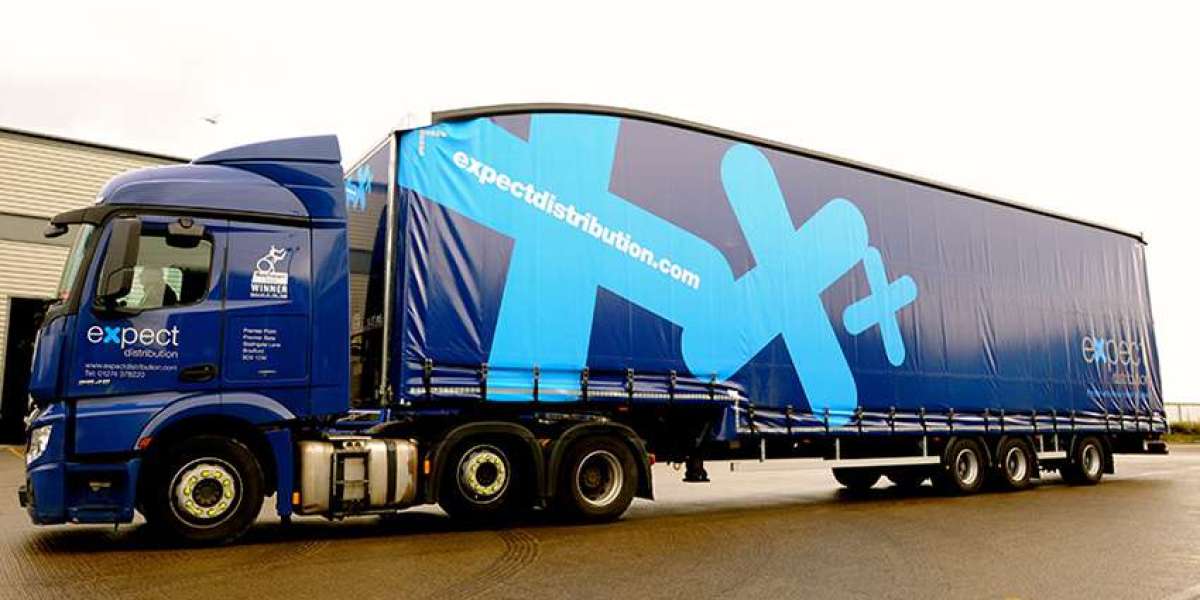In the world of logistics and supply chain management, speed, reliability, and cost-efficiency are everything. For businesses in the UK, one of the most effective methods of moving goods is through palletised distribution. This system, built around transporting goods on pallets, has become the backbone of modern freight logistics, ensuring that products reach their destination safely, quickly, and in the most economical way possible.
From small independent retailers to large manufacturers, UK companies across every sector rely on palletised distribution networks to keep their operations running smoothly. This article explores how palletised distribution works in the UK, its key benefits, top service providers, and the future of this vital logistics solution.
What is Palletised Distribution?
UK Palletised Distribution is the process of transporting goods that are stacked and secured on pallets, typically made of wood, plastic, or metal. A pallet acts as a stable base for the goods and allows for easy movement by forklifts or pallet trucks.
This system allows multiple packages to be shipped as a single unit, which reduces handling time, minimizes the risk of damage, and optimizes space in transport vehicles. In the UK, palletised distribution is especially important for B2B logistics, e-commerce deliveries, and national and regional warehousing operations.
How Palletised Distribution Works in the UK
The UK has a well-established network of pallet distribution systems that follow a hub-and-spoke model. This model allows businesses to send palletised freight across the country using shared logistics networks.
Collection from Sender
The process begins when a logistics provider collects the palletised goods from the business location. This could be a warehouse, factory, or retail store.
Delivery to a Central Hub
The collected pallets are transported to a central hub where they are sorted according to their final destination. These hubs are typically operated by pallet networks such as Palletline, Palletways, TPN (The Pallet Network), and Fortec.
Redistribution to Regional Depots
From the central hub, the pallets are moved to regional or local depots. These depots are usually closer to the delivery address and ensure quicker last-mile delivery.
Final Delivery to Recipient
The goods are delivered to the final recipient—be it a retailer, warehouse, or business client. Deliveries can include standard, next-day, or timed services, depending on the business's needs.
Why Businesses Use Palletised Distribution in the UK
Palletised freight delivery offers a range of advantages that make it the preferred choice for companies operating across Britain.
National and European Reach
Pallet networks in the UK have vast coverage across all postcodes. Many networks also extend into European markets, offering cross-border logistics with minimal hassle.
Cost Efficiency
By consolidating freight from multiple businesses, pallet networks reduce the cost per delivery. This shared infrastructure allows SMEs to benefit from lower transport costs usually reserved for high-volume shippers.
Faster Delivery Times
Thanks to well-coordinated networks, palletised freight can be delivered next day or even same day in some regions. This speed is critical for time-sensitive shipments.
Reduced Risk of Damage
Pallets keep goods secure and reduce the risk of individual package mishandling. This is especially valuable for fragile or high-value goods.
Improved Warehouse Handling
Pallets are easy to move with forklifts and require less manual handling. They are also easier to store in racking systems, making them ideal for warehouse management.
Top UK Pallet Distribution Networks
Several trusted pallet networks operate across the UK, offering high standards of delivery, tracking, and customer service. Here are a few of the most prominent:
Palletline
The UK’s first member-owned pallet network, Palletline offers nationwide and European distribution services with a focus on quality and sustainability.
TPN (The Pallet Network)
Known for its high delivery accuracy, TPN has over 100 members and handles millions of pallets annually. It provides flexible services, including tail-lift deliveries.
Palletways
Europe’s largest pallet delivery network, Palletways offers fast, reliable deliveries and strong IT integration for real-time tracking.
Fortec Distribution Network
Fortec offers full pallet logistics with a strong emphasis on technology and customer support. It serves the UK and wider European destinations.
Palletforce
With a strong technological backbone, Palletforce provides consistent service levels and international reach for businesses of all sizes.
Technology in Palletised Distribution
Modern pallet distribution in the UK is powered by smart logistics technology. Here’s how it enhances performance:
Real-Time Tracking
Each pallet is tagged and scanned at every stage, allowing senders and recipients to monitor progress online. Proof of delivery (POD) is provided via digital signatures and time stamps.
Route Optimization
Advanced GPS systems and algorithms help reduce mileage, fuel usage, and carbon emissions. This is especially important in urban deliveries and time-sensitive shipments.
Online Booking Systems
Clients can book, track, and manage deliveries through online portals, improving accessibility and reducing administrative overheads.
Automated Sorting
At hubs, automated systems sort pallets quickly and accurately, reducing human error and speeding up processing times.
Who Uses Palletised Distribution in the UK?
Retail and E-commerce
Retailers rely on palletised deliveries to keep shelves stocked and warehouses filled. Online sellers use pallet delivery to move goods between fulfillment centres or to stockists.
Manufacturing and Industry
From raw materials to finished goods, manufacturers use palletised distribution to supply production lines and distribute products to customers.
Food and Beverage
With temperature-controlled options, perishable items can be shipped efficiently while maintaining freshness and hygiene.
Healthcare and Pharmaceuticals
Medical supplies and equipment are distributed in a secure and timely manner using pallet systems with strict compliance standards.
Agriculture and Farming
Farmers use palletised freight to move produce, animal feed, and machinery parts to distributors and resellers across the country.
Sustainability in Palletised Distribution
As the UK moves towards greener logistics, palletised distribution plays an important role. Here’s how:
Load Consolidation reduces the number of vehicles on the road
Eco-friendly pallets (like recycled plastic or presswood) minimize waste
Fuel-efficient routes and electric delivery vehicles reduce emissions
Pallet pooling systems promote reuse and reduce the need for new pallets
Many pallet networks now prioritize carbon footprint reduction, aligning with the UK’s broader environmental goals.
Challenges and Future Trends
Driver Shortage
The UK faces a chronic shortage of qualified HGV drivers. Pallet networks are investing in driver training programs and better working conditions to address this issue.
Brexit and Border Controls
Post-Brexit regulations have added complexity to European deliveries. Pallet networks are adapting through better customs integration and cross-border partnerships.
Automation and AI
The future of palletised distribution includes automated vehicles, AI-driven warehouse management, and predictive logistics for smarter supply chains.
Conclusion
In the complex world of supply chains, UK palletised distribution offers a simple yet powerful solution. It streamlines logistics, reduces costs, and enables businesses to meet rising customer expectations. With the support of advanced technologies, sustainability initiatives, and a network of dedicated providers, palletised distribution continues to be the engine that drives British commerce forward.
Whether you’re a small business looking to expand regionally or a large corporation managing thousands of shipments a day, the right pallet distribution network can make all the difference in efficiency, reliability, and customer satisfaction.







